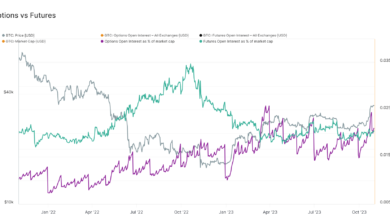
Greatest Cryptocurrency Money Laundering Plans Ever
Since cryptocurrencies serve illicit purposes such as money laundering, the industry has grown in popularity. In late April 2024, authorities from the US government accused Samourai Wallet, a cryptocurrency mixer service, of money laundering. Cybercriminals allegedly utilized Samourai Wallet to launder over $100 million in cryptocurrency. How far up the list of the best cryptocurrency money laundering scams is Samourai Wallet? In addition, this article lists the top five Bitcoin money laundering cases ever.
Crypto Money Laundering Plans
Let us take a moment to define cryptocurrency money laundering. In the cryptocurrency world, money laundering is hiding stolen cryptocurrency funds. So they can do so without drawing attention to the illegal activity that gave rise.
Top Five Biggest Crypto Money Laundering Plans

Now, let’s read about the most significant crypto money laundering cases that have occurred to date.
Bitfinex Hack
One of the biggest cryptocurrency exchanges in the world at the time, Bitfinex, suffered a 120,000 Bitcoin (BTC) hack in August of 2016. It’s one of the largest cryptocurrency hacks ever. The stolen funds had a $7.73 billion market value as of April 26, 2024, when Bitcoin traded for $64,450. In line with the U.S., Ilya Lichtenstein and his spouse, Heather Morgan, were detained on February 8, 2022, by the Department of Justice (DoJ) for alleged involvement in a scheme to launder the funds obtained from the hack.
Lichtenstein and Morgan allegedly laundered the stolen assets through a “labyrinth of cryptocurrency transactions.” The pair created online accounts at cryptocurrency exchanges to withdraw money. Additionally, they changed BTC into other tokens and cryptocurrencies that protect privacy.
Tornado Cash Service
Users can render their Bitcoin untraceable using Tornado Cash, a cryptocurrency mixing service. The service combines a user’s tokens with a collection of other cryptocurrencies to obfuscate the tokens’ origins. In addition, Tornado Cash was a tool used by hackers and criminals to hide the money trail connected to their illicit operations and to launder stolen money. Roman Storm and Roman Semenov, the co-founders of Tornado Cash, were charged by the US Department of Justice in August 2023.
Authorities from the government said that the mixer was used to launder money stolen by the Lazarus Group, a North Korean hacking outfit that is sanctioned. Alexey Pertsev, the creator of Tornado Cash, faced charges in March 2024 of utilizing the platform to launder $1.2 billion in illegal funds.
Ronin Bridge Exploit
The most extensive decentralized finance (DeFi) hack occurred in March 2022 when the gaming-focused blockchain Ronin Network was breached for approximately $600 million in Ethereum (ETH) tokens and USDC stablecoins. The North Korean cybercrime collective Lazarus Group allegedly obtained access to five of the nine private keys held by transaction validators for Ronin Network’s cross-chain bridge, according to blockchain analytics company Chainalysis. The keys granted withdrawal requests for 25.5 million USDC coins and 173,600 ETH tokens.
After that, Lazarus Group used over 12,000 distinct crypto addresses to carry out an extremely complex money-laundering method. Wallets holding digital currencies were to hold the stolen money before batch-combining Tornado Cash. After that, the hackers exchanged ETH for BTC, which was once more divided into batches.
Bitcoin Fog
Bitcoin Fog is purportedly the oldest Bitcoin financing business in the world. In addition, the U.S. Department of Justice claims that Bitcoin Fog ran from 2011 until 2021. Over 1.2 million Bitcoins, valued at $400 million at the time of the transactions, are said to have been moved by Bitcoin Fog during that period. Roman Sterlingov, a dual Swedish-Russian national, was found guilty in March 2024 by a U.S. court of running Bitcoin Fog. Nicole M. Argentieri, acting assistant attorney general for the Criminal Division of the Justice Department, stated:
Samourai Wallet
In April 2024, the U.S. DoJ accused the co-founders of Samourai Wallet, a cryptocurrency mixer service, of money laundering charges comparable to the accusations made against Tornado Cash. William Lonergan Hill and Keonne Rodriguez built the cryptocurrency wallet Samourai Wallet in 2015. According to the DoJ, the wallet included two features that aided money laundering.
A Whirlpool feature coordinated batches of cryptocurrency trades between Samourai Wallet users to obscure the fund trail. Meanwhile, a ” Ricochet ” feature allowed wallet users to make intermediate transactions known as “hops.” When sending cryptocurrency from one address to another.
How to Prevent Money Laundering in Cryptocurrency?
Completely stopping money laundering is a highly challenging task. Consider the cryptocurrency mixer market. New mixer solutions like YoMix and Sinbad emerged in response to government action against services like Tornado Cash. With time, cybercriminals are growing more experienced and are expanding the range of services they use to launder money. As a result, to combat crypto crime, relevant authorities will need to gain a deeper understanding of on-chain behaviour.
In addition, Financial organizations such as Japan’s Sumishin SBI Net Bank are stepping up their efforts to lower the risk of cryptocurrency money laundering. Sumishin SBI Net Bank announced a mandate prohibiting users from sending assets to cryptocurrency exchanges for about one month following account establishment in July 2023.
Bottom Line
Cryptocurrencies’ anonymity and privacy-preserving qualities have become a double-edged sword for the sector. Too many dishonest people are abusing cryptocurrencies and damaging the reputation of the whole market.







